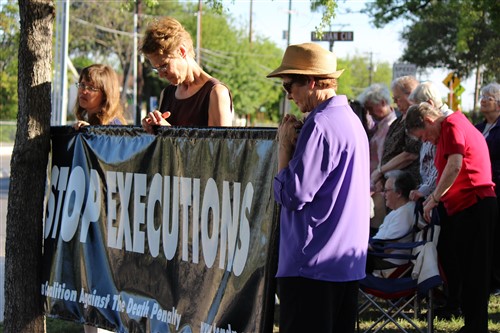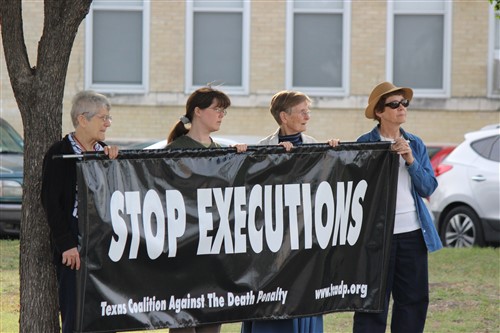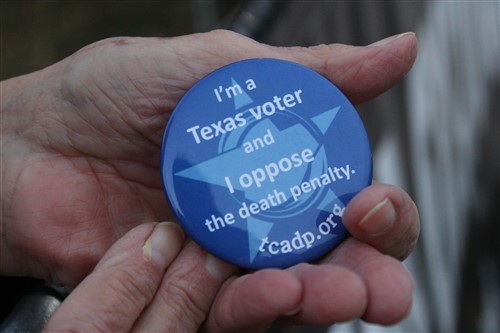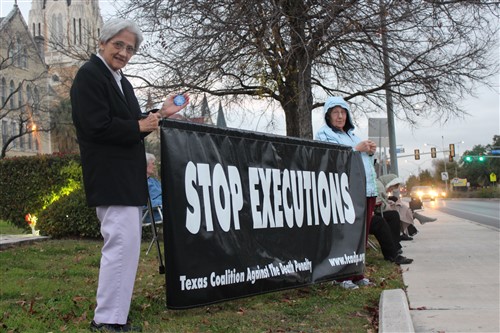Washington State Abolishes the Death Penalty
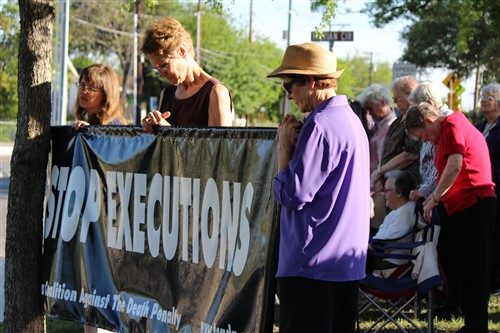
For several years, individuals driving on 24th Street in San Antonio, Texas around 6:00 p.m. on certain days have been seeing a group of women holding signs proclaiming “Stop Executions” and “Sisters of Divine Providence pray for an end to violence.” The Sisters hold a silent prayer vigil at the time of each execution in the state of Texas, praying for an end to all violence and specifically punishment by death.
[The following information is excerpted from the Death Penalty Information Center, www.deathpenaltyinfo.org.]
Advocates for the abolition of the death penalty had reason to rejoice on October 11, 2018. Washington joined 19 other states and the District of Columbia to outlaw execution. By unanimous vote the Washington Supreme Court struck down the state’s capital punishment statute as constituting “cruel punishment.” Chief Justice Mary E. Fairhurst declared, “the death penalty, as administered in our state, fails to serve any legitimate penological goal; thus, it violates … our state constitution.” The ruling followed Gov. Jay Inslee’s moratorium on executions which had been in effect since 2014.
The court also cited recent research which showed that juries in the state were more than three times more likely to impose the death penalty on a black defendant than on a white defendant in a similar case. In the judgement of the court, there was “implicit and overt racial bias against black defendants” in the state.
A recent poll of likely voters in Washington was carried out by Public Policy Polling on behalf of the Northwest Progressive Institute (NPI). Made public on July 12, 2018, the results of the poll included the following:
69% preferred a life sentence for those convicted of murder
24% favored the death penalty
8% were not sure
A further breakdown of the 69% preferring a life sentence:
46%: life sentence without parole and work in prison to pay restitution
10%: life sentence without parole
13%: life sentence with possibility of parole after at least 40 years
NPI said that “not a single subsample within the survey favored the death penalty… not even Donald Trump voters.”
According to Pew Research polls, the numbers on the national level differ quite a bit from those in Washington. However, support for the death penalty has shown a sizeable decline.
1996: 78% 2007: 64% 2016: 49% 2018: 54%
Pew’s 2018 national poll reported the lowest levels of support for the death penalty among Democrats (35%) and Blacks (36%); the highest levels were recorded for Republicans (77%) and White evangelical Protestants (73%).
Texas carries out more executions than any other state. A 2012 study by the University of Texas and the Texas Tribune reported that 73% of Texans somewhat or strongly supported the death penalty. Texas has executed 556 persons since the death penalty was reinstated in 1976; this number includes 11 of the 21 executions in the U.S. in 2018.
The next Texas executions are on December 4 and 11. The Sisters would like to encourage others to join them in prayer in front of Our Lady of the Lake Convent, or from a distance. They intend to continue their silent vigils, trusting in Providence to bring about change.
By Ann Petrus, CDP


